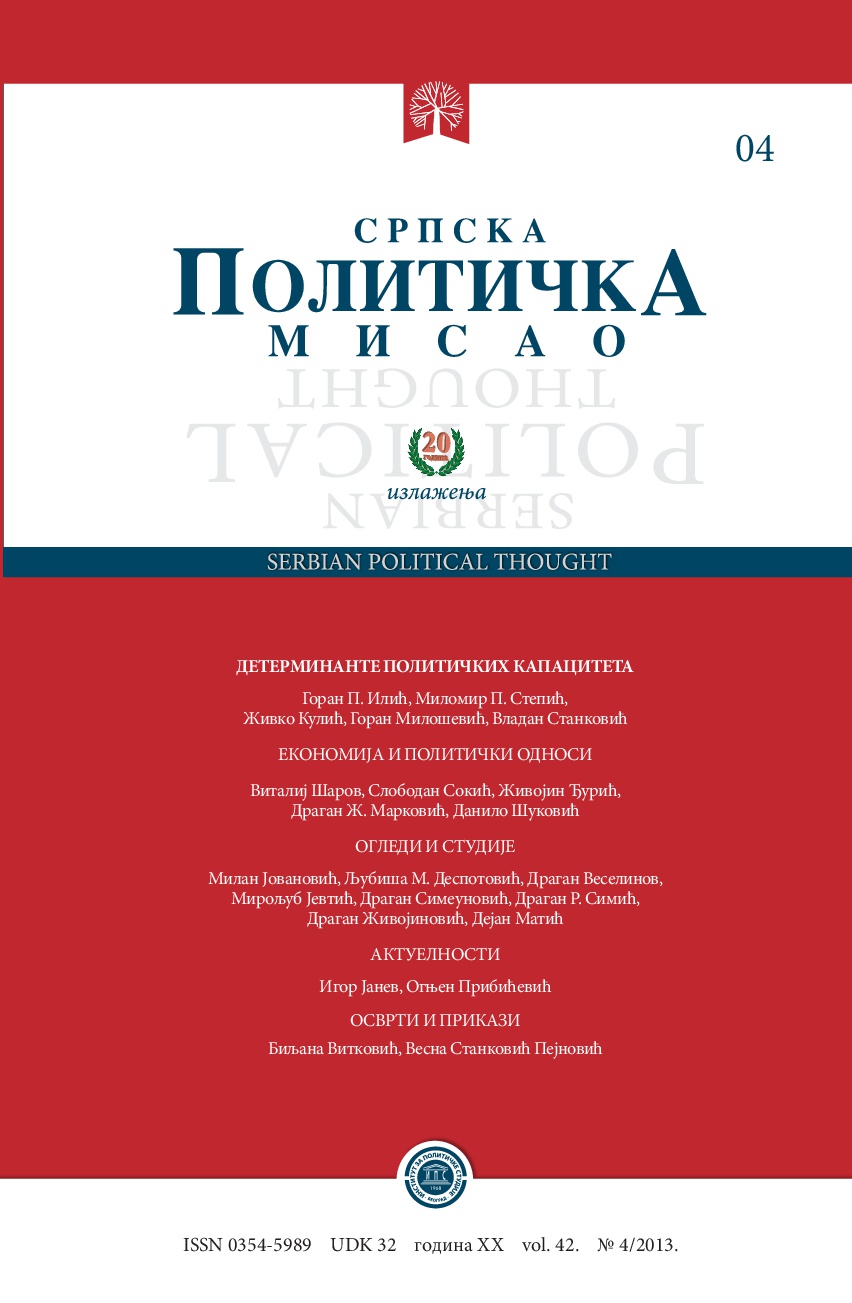Својински односи и демократски капацитети политичких институција
Property Relations and Democratic Capacities of Political Institutions
Author(s): Dragan Ž. Marković, Danilo ŠukovićSubject(s): Government/Political systems, Management and complex organizations, Economic development
Published by: Институт за политичке студије
Keywords: property relations; political institutions; democratic capacities;
Summary/Abstract: True democratisation of the property relations in Serbia hasn’t yet occurred because one form of the autocratic management of the social reproduction, concealed by the formal self-management, was replaced by the another form of the autocratic management, concealed by the multiparty parliamentarism. Although all parties in Serbia plead for democracy, both private and state property are being put in the middle of their programme orientations. None of the parties gives great significance to the shareholding and cooperative management of the employees. In the programme documents most of the parties they are hardly mentioned. The protagonists of the everyday political campaign for privatization and absolutization of the monopolistic forms of private and state property are those forces that already own such ownership or tend to get their hands on it as soon as possible. The aim of the monopoly of ownership comes from the aim of the monopoly of power and vice versa. Great private wealth in contrary to the mass poverty is indispensable condition of both gaining and keeping of the conquered power over the disempowered masses. The aims of the “new elite” for reprivatisation, i.e., for the keeping of their power is in correlation with the difficult economic situation, which is closer to the autocratic than to the democratic aims, and the absence of the organised democratic movement with the alternative – democratic aims. If there have been organised democratic forces, the property transformation would have had as its goal the enrichment of the entire nation, and not only individuals, and it would surely had gone into the direction of the socialisation of the private ownership, which took place in the developed countries a long time ago. The democratisation of the property relations and political institutions is indispensable condition of the integration of Serbia into the world community. The integration of the national communities into the world community is actually taking place in confrontation against the autocratic tendencies in both national and international extent. In the struggle for such integration, the progressive forces of Serbia need to be connected with the progressive forces in the world, because the resistance it comes across can only be broken with the joint forces.
Journal: Српска политичка мисао
- Issue Year: 2013
- Issue No: 4
- Page Range: 129-143
- Page Count: 15
- Language: Serbian

